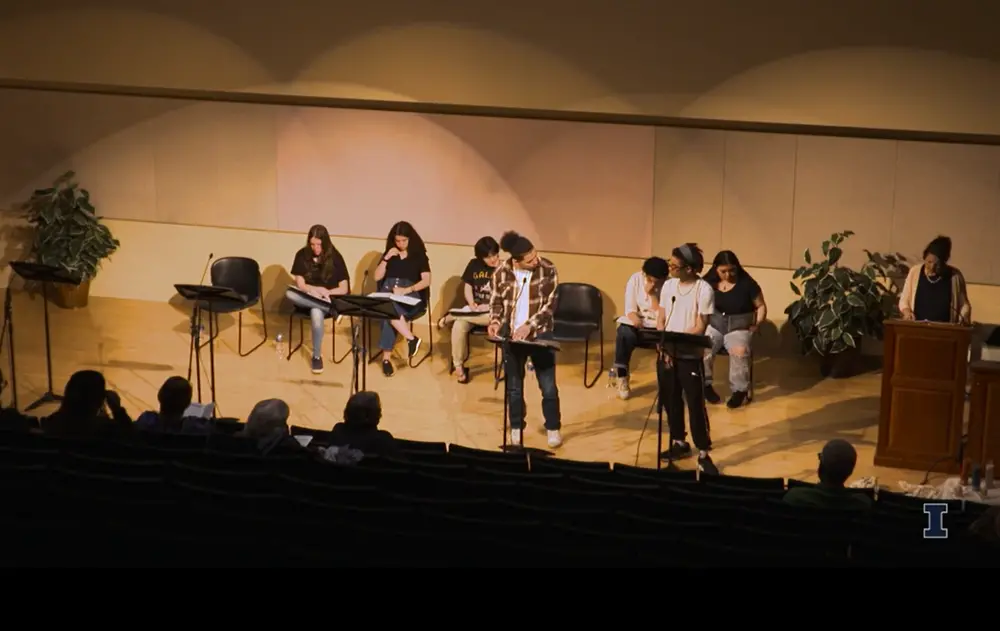
Speaking out about community violence, trauma, and injustice is never easy, but it’s especially daunting when you’re a teenager.
This spring, classics professor Angeliki Tzanetou gave high school students in Champaign-Urbana a platform to come together and discuss the impact of these issues in a more accessible way.
Following up on the success of last year’s staged reading of an urban adaptation of the Greek tragedy “Antigone,” Tzanetou and several collaborators organized a staged reading of Luis Alfaro’s “Electricidad” this year. The play transports the story of Electra—a Greek tragedy by Sophocles—to a Chicano neighborhood and explores cycles of violence and paths to redemption.
Tzanetou said it was that shared focus on cycles of violence in young communities that made “Electricidad” the perfect sequel, but much of the project’s impact comes from the art of theatre itself.
“I think theater is important for young people, especially at this time, because it gives them the opportunity to speak about not just their own struggles, but also political issues,” she said. “It gives them a place to come together with care to go over the issues, what it means to be stuck in a system if violence, and the trauma that results.”
Dania De La Hoya Rojas
Editor's note: This story first appeared in the School of Literatures, Cultures & Linguistics Fall 2023 newsletter.